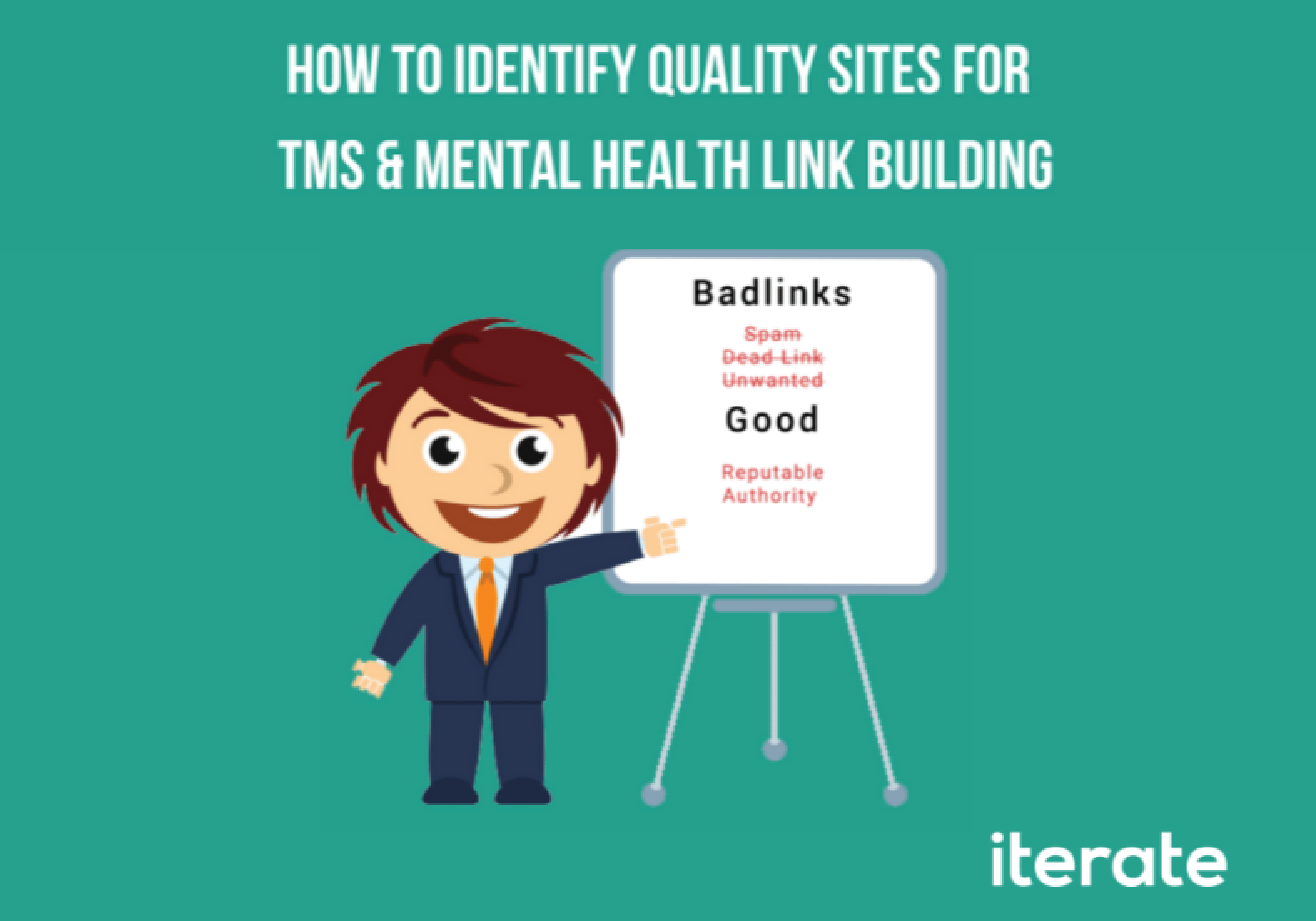In today’s age, the online reputation of your business is everything. Everything you do, from portraying yourself to running marketing campaigns, matters. To that end, the first step toward achieving an effective link building program and minimizing the risk of penalties is learning how to evaluate site quality.
This article will explain why evaluating site quality is necessary, how it can help acquire high-quality backlinks, and how it can impact your mental health clinic.
Let’s jump right in.
Why is Evaluating Site Quality Important for Link Building?
Google prefers to rank websites that constitute high-quality content, are optimized for web search engines, and have ample backlinks from top-rated websites.
These websites are authoritative (have a high domain authority), easier to find in search engines, and tend to attain an admirable link profile.
All things aside, the most important factor from the aforementioned things is to have an effective link building strategy – one that has a framework to analyze the site quality of target websites where you’re interested of getting backlinks from.
More specifically, evaluating site quality helps you in the following ways.
- Avoid Getting Penalized – Google ignores low-quality websites that provide no value to its consumers. It’s useless to apply link schemes and sneaky redirects to low-quality websites because Google’s algorithm (Penguin update) is smart enough to catch such activities. Applying workaround solutions to low-quality websites will get them penalized.
- Ensure High-Quality Backlinks – attaining a high-quality backlink profile is possible if a website imparts accurate and satisfactory information. Site quality directly impacts search ranking. For that reason, you need to maintain your website’s link profile by ensuring you get ample link equity from other top-ranking websites.
- Carve an Impeccable Reputation – your outreach strategy must be designed to earn a reputation for your website on search engines and social media. Ensure to build an audience that promotes your brand and give them opportunities to engage on your social media channels, forums, and web pages.
Link building is a solid strategy for reaching out to patients who are desperately seeking your treatments/services on platforms and mediums (other than search engines). But it will only work for you if your website is high-quality and seems trustworthy (both for search engines and the visitors/patients).
What to Look at When Determining Site Quality?
You can tell a lot about a website’s overall quality by looking at the following elements:
- The Content of the Website
The content of the website should be high-level, relevant to your industry (mental healthcare), and should be updated on a regular basis.
Go through the blog of a target website. See the publishing date of the last article. If it has been months since the website posted anything, it’s a red-flag.
You can also go one step further, run a content analysis on an SEO tool, and look at the total number of social shares, ranking, traffic, or any other relevant metric.
- Look Out for Link Schemes
Websites that charge for link building or guest posting are going against Google guidelines.
Therefore, you must stay away from websites that charge for giving dofollow links and advertise such links in guest posts.
- Check the Domain Authority/Domain Rating
One of the best ways to gauge a website’s quality is to look at its domain rating (DR) or domain authority (DA).
You can do that with any popular SEO tool, such as MozBar, Ahrefs, and SEMrush.
Building links with a high-DA/DR website will result in greater equity, which, in turn, will help you with your ranking efforts.
- Evaluate the Functionality of the Website
Evaluate the functionality of the target website considering the following factors:
- The website should be easy to navigate.
- It should be free of broken links and images.
- It shouldn’t have excessive pop-ups or advertisements.
- The website should be optimized for mobile.
Most importantly, the website should be free of any grammatical errors and design-related issues.
- Overall Reputation of the Business
Finally, you can assess the overall reputation of the business to gauge the site quality.
Here’s how you can go about doing that:
- If the business has a social media presence, gauge the metrics that define its social signal and user engagement values.
- Monitor review sites.
- Perform a quick Google search with the brand name and look in the news section for any concerning updates.
Final Thoughts
Evaluating the site quality of websites before acquiring backlinks from them can help you maintain an impeccable reputation, potentially rank higher in the search engines, and attract potential patients.
As a final word of advice, vigilantly look for potential risk factors, shortlist target websites where you can acquire links from, and ignore the ones with several red-flags.






